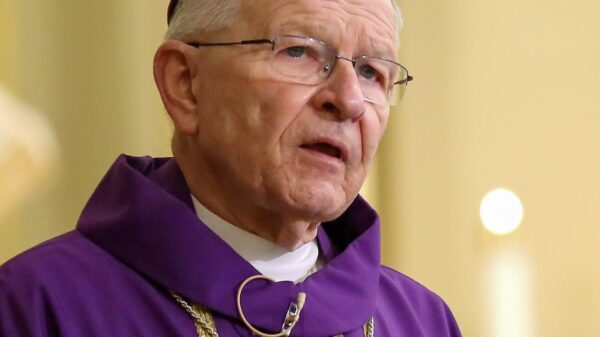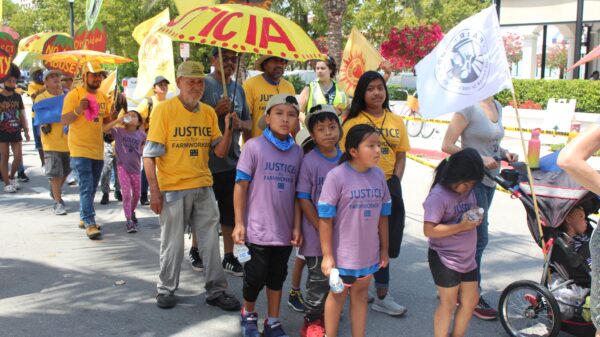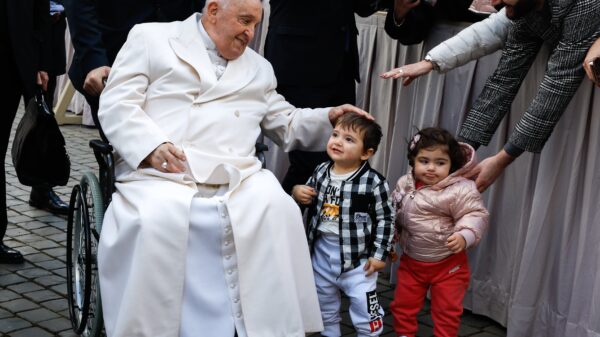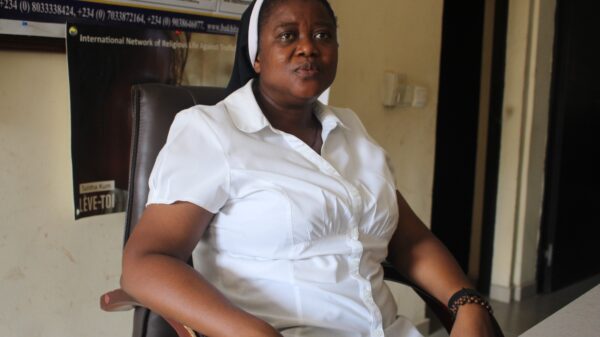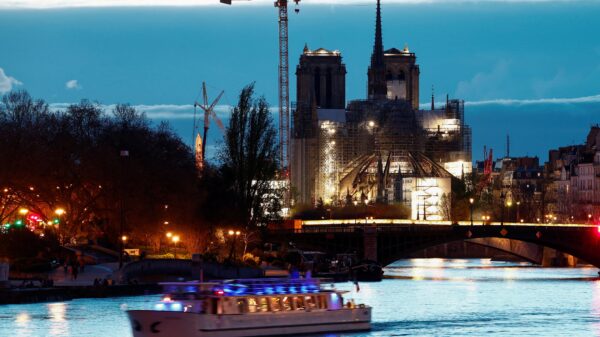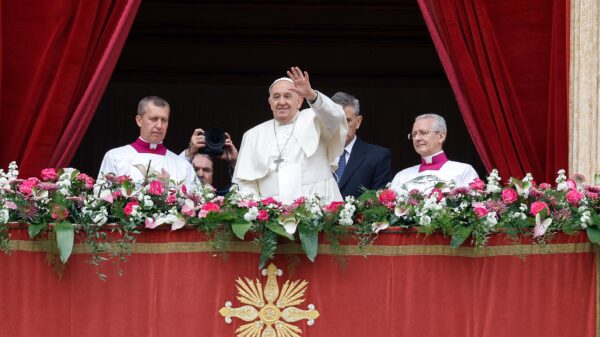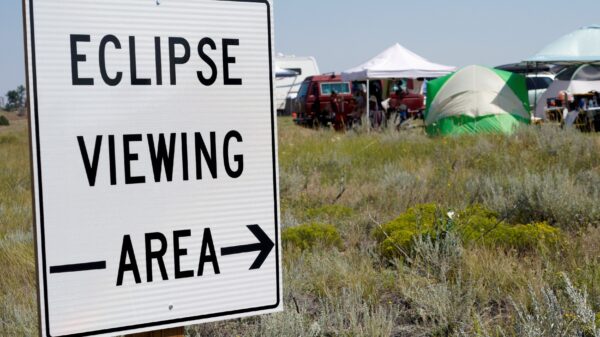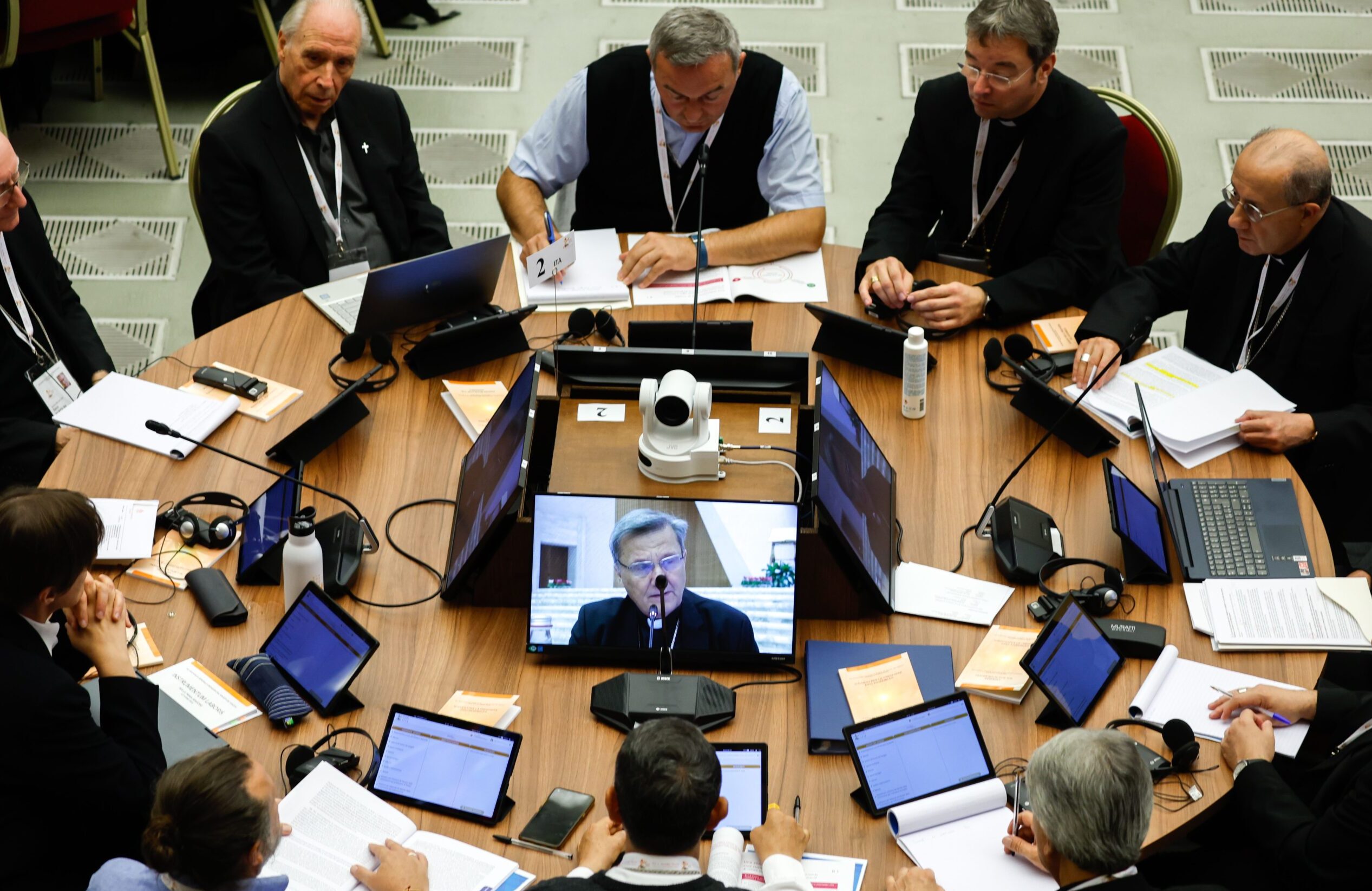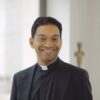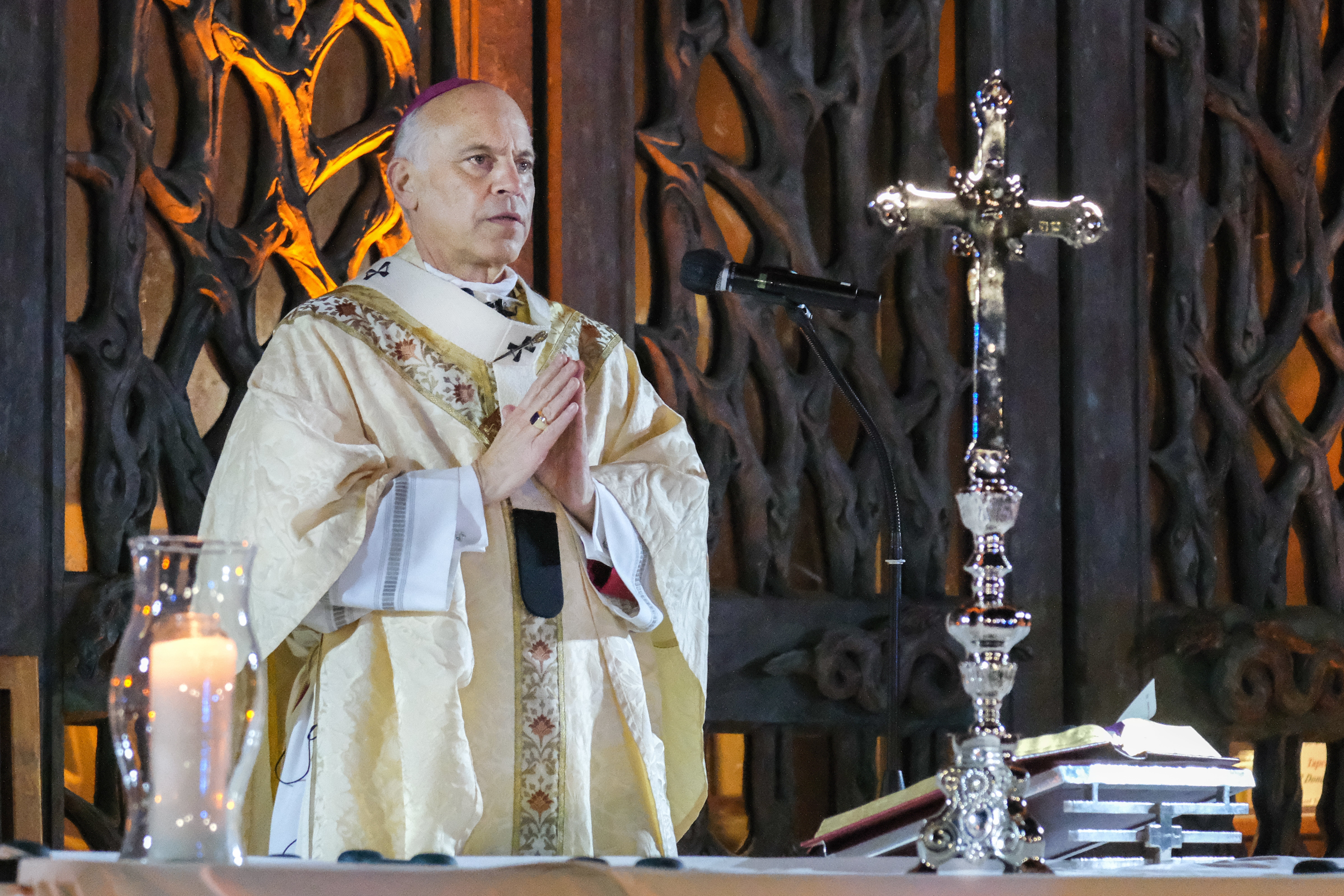(OSV News) — The global Synod on Synodality has been two years in the making, but even as the synod’s universal stage in Rome is underway, the synod’s public discussions are revealing how this process is starting to free the church to realize the vision of a missionary church Pope Francis advanced at the very beginning of his pontificate with the publication of “Evangelii Gaudium.”
“Evangelii Gaudium” was not simply Pope Francis’ vision; the apostolic exhortation came out of Pope Benedict XVI’s 2012 Synod of Bishops on the “New Evangelization” — a term coined by his predecessor, St. John Paul II, for the church’s missionary renewal following the Second Vatican Council.
Without a doubt, the “new evangelization” has made uneven progress in the whole church. Sixty years after the Second Vatican Council, the council’s teaching, and the post-Vatican II raft of papal teachings and proposals following other synods of bishops, continue to “trickle down” — a process that leaves most of this tremendous amount of effort relegated to a shelf or the cloud rather than successfully incarnated in the life of a local church.
This first week at the synod gave a real glimpse into how Pope Francis’ effort to develop a “synodal church” — marked by communion, participation and mission — might finally unleash that evangelizing church of “missionary disciples” all walking together with Jesus Christ, who “can move forward, boldly take the initiative, go out to others, seek those who have fallen away, stand at the crossroads and welcome the outcast.”
In his Oct. 4 remarks, Coptic Catholic Patriarch Ibrahim Isaac Sedrak, seated next to Pope Francis, reminded participants at the synod that “the guiding thread of this synod” must be the “centrality of Christ.”
“The world expects from us the witness of the risen Christ, of life and of hope,” he said, calling on them to ask for Mary’s prayers as “the only way to reach our aims is the one she herself showed us: to listen to Christ and to ‘do whatever tells you'” — a reference to the Blessed Mother’s last recorded words in John 2:5.
The testimonies given at the synod’s public portions also have revealed ways in which those who embraced this process have reaped spiritual dividends and initiatives that can be emulated all over the church.
Cardinal Grzegorz W. Rys of Lodz, Poland noted his archdiocese of 219 parishes saw 7,000 people — out of 1.3 million Catholics — meet in 300 synodal groups.
While small, the cardinal said the synod groups allowed Catholics to actually meet as persons and have an “experience of unity in a rich diversity.” He noted this included leaders of charismatic Catholic groups and also “extraordinary form” Catholics, whose spirituality is nourished by the older forms of the Roman Rite.
The cardinal, who just received the red hat during the Sept. 30 consistory, said for some people, the synodal process was the first time they spoke up and felt heard; others, however, felt it was probably the last time they were going to say anything in church and had little expectation much would come of it.
Cardinal Rys noted the fears in Poland and elsewhere about synodality, namely that it would be in opposition to the authority of the church’s hierarchy. But he related how one layperson in a synodal group told him laity are not “afraid” of the hierarchy. What they are afraid of is when clergy leave aside their formation, “when they do not listen to the Word of God, do not confess, do not really belong to any concrete community, when they escape any retreats.” This person said, “Yes, in such and only case, we are really afraid of them and their power in the church.”
The cardinal also said the experience of “broad synodality” helps address real problems of evangelization, making sure the church has “not only instruments, but even the language to evangelize.” He noted a significant “gap” exists between the language used by clergy and lay Catholics involved in the church’s work and those they mean to reach.
As an example, the cardinal referred to his experience at the 2015 Synod on the Family when someone in the synod hall “started to speak about Trinitarian inner life of God as the most important pattern for true family life.” Toward the end, one observer who had been away from the church for a long time, got up and said, “I’m sitting here with you the whole day. You stress all the time that it is the people like me you want to address. So I have to tell you that I didn’t understand a single word out of everything you have said today.”
Without broad synodality, Cardinal Rys warned, “we have no chance to bring the Gospel to the people of today, especially if you want to reach with the Gospel those who do not come to your churches — in Lodz this is 80% of (the) population.”
Following the cardinal, Mathew Thomas from the United Arab Emirates shared how the “migrant church” on the Arabian peninsula — Catholics in the apostolic vicariates of Southern Arabia and Northern Arabia — vigorously engaged the faithful in the synod process from the vicariate level to the parish level. Having 100 different nationalities of Catholics in countries all over the Arabian peninsula, they printed the prayers and synod reflection materials in different languages, and prayed for the synod daily at Masses and in families.
Thomas said they had 150,000 people — 7.5% of the Arabian peninsula’s 2 million Catholics — “directly participating in the synod, sharing their dreams, hopes, frustrations and suggestions.”
For contrast, the U.S. mustered the direct participation of just 1% of its Catholic population — 700,000 out of 67 million Catholics — in the synod process.
Thomas described how the synod process enabled new evangelization efforts, engaged teenagers more deeply in the church’s life, and brought people back into the life of the church as “the listening process was also a healing process for many.”
He noted how youth volunteers, tasked with reaching out to marginalized people for the synod, visited one alienated community again and again, until “finally they sat together and shared their feelings and opinions.” As a result, he said “now they are back in the church.”
One major commonality between the cardinal’s and the layman’s testimonies was how their local churches were continuing to deepen synodality rather than just wait for the outcome of the Vatican gathering.
The Polish cardinal revealed that as of Sept. 16, the archdiocese has begun “parochial synods in all the parishes of the diocese.”
He explained that parish pastoral councils — now established in all the parishes — will run each parish synod, prepare the questions on the community’s problems and challenges, and then the parish priest will convene the parishioners for a meeting rooted in “spiritual conversation.”
Thomas explained that the vicariates’ engagement in the synod returned to the parishes, yielding reflection and feedback from parishes on the continental synod documents and also the “Instrumentum Laboris,” the working document for the global synod.
“We have also taken steps to make corrections and improvements based on the suggestions given by the faithful during the parish synod,” he said.
As the session turned to the subject of communion, the Oct. 9 testimonies of Catholics from local churches in Asia also was illuminating — both in terms of how they sought to be agents of communion and obtain the virtues necessary for living it.
Father Clarence Davedassan of Malaysia noted that churches in Asia are small compared to the rest of the population, but “play a pivotal role in building bridges for peace, harmony, reconciliation, and even justice and freedom.”
He noted the church in Asia, to be “light and salt of the earth,” has worked to build Basic Ecclesial Communities, sometimes known as Small Christian Communities, which “bring about not only spiritual transformation but also social transformation” and show “a communion that radiates to Christians and non-Christians alike.”
Father Davedassan said they are “beacons of hope for Gospel witnessing in society” and are “a leaven of Christian life, care for the poor, and commit to transforming society through a lived Gospel experience.”
In her testimony, Siu-Wai Vanessa Cheng, a member of the Focolare movement from Hong Kong, said the Asian church has focused on reaching out to others through “four dialogues, namely that with cultures, religions, the poor and nature.”
“The synodal process begins with genuine listening, but there is no listening if there is no cultural, religious, social, economic and political awareness of the locality,” Cheng said.
Cheng also noted among Asians respect is an essential value and “necessary as we listen and dialogue, discern and decide.”
At the same time, however, she noted people have reasons for not giving their views — such as fear of making mistakes, of losing social acceptance, or being identified as problematic, disrespectful and challenging. She said the church needs to pay attention to the faithful who stay silent and take seriously the “experiences of joy and wounds and the issues raised.”
Addressing the synod’s participants Oct. 4, Pope Francis underscored that “journeying together” is the program for this synod, guided by the Holy Spirit. And to make room for the Holy Spirit, “the priority should be to listen.”
Listening to the testimonies given at the synod is opening up wider horizons for how the “new chapter of evangelization” Pope Francis described in “Evangelii Gaudium” can come alive throughout the church.
Peter Jesserer Smith is National News and Features Editor for OSV News. Follow him on X (formerly known as Twitter) @jesserersmith.


